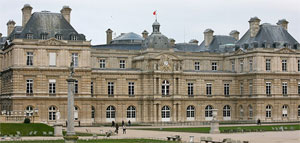Only about two weeks after Nicolas Sarkozy lost his presidential immunity, police searched his home and office to look for evidence to support allegations of illicit political financing, in the context of the famous “Bettencourt case”, one of the many “affaires” to shake French political life. What matters is not the few instances of misconduct but rather the system that allows them to occur. Now more than ever, the French citizens are fed up. The need for a more ethical public life was high on the agenda during this year’s elections that brought François Hollande and the socialist party to power. Does this mean that France will enter a new era of integrity?
 The new president has pledged to clean up politics, committing to all of the seven recommendations put forward by TI France, and creating a multi-stakeholder commission on the ethical reform of public life led by former Prime Minister Lionel Jospin. Initial moves have already been made. Prime Minister Jean-Marc Ayrault made the new government sign an anti-corruption oath by which all ministers are bound to behave ethically, to publish their declarations of interests and to renounce local executive mandates. Since 30 June, senators’ declarations of interests are available to the public. These initiatives are the first steps toward a system for the prevention of conflicts of interest that ought to be established – as highlighted in our recent report, Money, Politics, Power: Corruption Risks in Europe, France and Slovenia were the only two of 25 European countries surveyed where parliamentarians did not make their interests public. These declarations, however, remain insufficient and vague, and do not prevent the issue of revolving doors between government and the private sector.
The new president has pledged to clean up politics, committing to all of the seven recommendations put forward by TI France, and creating a multi-stakeholder commission on the ethical reform of public life led by former Prime Minister Lionel Jospin. Initial moves have already been made. Prime Minister Jean-Marc Ayrault made the new government sign an anti-corruption oath by which all ministers are bound to behave ethically, to publish their declarations of interests and to renounce local executive mandates. Since 30 June, senators’ declarations of interests are available to the public. These initiatives are the first steps toward a system for the prevention of conflicts of interest that ought to be established – as highlighted in our recent report, Money, Politics, Power: Corruption Risks in Europe, France and Slovenia were the only two of 25 European countries surveyed where parliamentarians did not make their interests public. These declarations, however, remain insufficient and vague, and do not prevent the issue of revolving doors between government and the private sector.
The other issue the new executive intends to tackle is the – very French – “cumul des mandats”, a widespread problem that does not even have a name in most languages. More than 80 per cent of French national officials also hold one or more local mandates, which is troubling with regard to conflicts of interest and general diligence, as well as renewal of the political class. Despite strong public support, the struggle to put an end to this oddity will be tough. What François Hollande needs now is political support for his reforms, but allies are shying away, even within his own party.
French citizens show an ambivalent relationship with corruption and need to engage more in the fight for integrity and transparency in political life. The new government, nonetheless, has to lead the way by rebuilding public trust in institutions. The new team in power is going in the right direction but what will happen after the honeymoon? With the long-awaited bill on the ethical reform of public life, will France see a real change in its politics through efficient and courageous reform, or will it swim in the dark sea of ornamental measures and empty words? The road ahead is long. At the same time, François Hollande could also break new ground by addressing the elephant in the room when it comes to the strength of France’s anti-corruption framework: the judiciary. The separation between politics and big business will only happen with a truly independent justice system, free from the control of the executive power and able to investigate all financial and political scandals, guaranteeing greater equality among citizens and bringing France to the level of other European democracies.















 Connect with us on Facebook
Connect with us on Facebook Follow us on Twitter
Follow us on Twitter